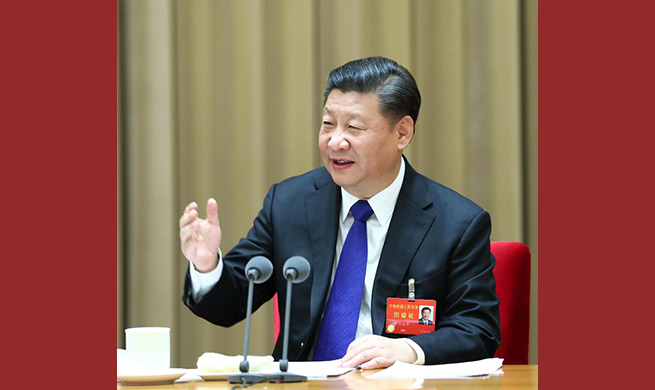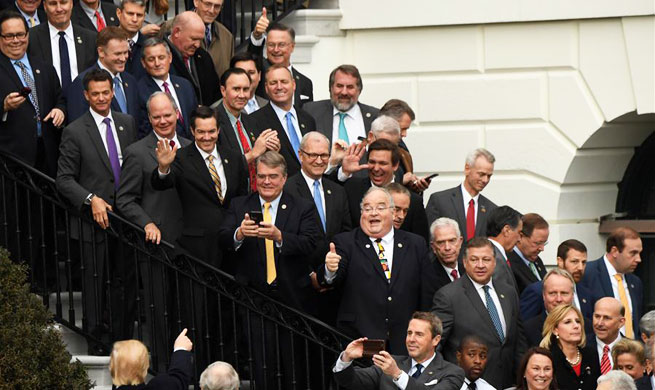TOKYO, Dec. 21 (Xinhua) -- The Bank of Japan (BOJ) on Thursday decided to maintain its ultra-easy, aggressive monetary policy as it continues its pursuit of a lofty 2 percent inflation goal amid stagnant wages and slow price gains.
The BOJ following its two-day policy board meeting voted to hold its short-term interest rates at minus 0.1 percent and keep its 10-year government bond yield to about zero percent through its bond buying program.
Japan's central bank also voted to maintain its purchases of assets, including exchange-traded funds (ETFs), with BOJ Governor Haruhiko Kuroda telling a press briefing that this was not aimed at pushing up stock prices.
"Our ETF buying is part of our policy framework. It is playing a big role in pushing down the risk premium," Kuroda told a press briefing Thursday after the bank's two-day policy meeting.
"We're not purchasing ETFs to target a specific stock price level or push up stock prices. We're doing this to achieve 2 percent inflation at the earliest date possible," Kuroda said.
Despite the government heralding an escape from deflation after seven straight quarters of economic expansion, price gains have remained low at just 0.8 percent, with the BOJ chief conceding that headwinds remain.
"We expect Japan's economy to continue expanding gradually. It's true inflation, while accelerating somewhat, has remained weak despite an expanding economy and tightening job market," Kuroda said.
Prices still remain well below the BOJ's target, however, and are compounded by corporate profits not being converted into substantially higher wages leading households to tighten spending which is impacting domestic consumption and investment, economists have said.
This cycle has created a "deflationary mindset" in Japan, which is itself compounding the sluggish pace of price increases.
Kuroda, however, continues to maintain that inflation will accelerate.
"We expect companies' price-setting behavior to gradually strengthen ahead. That will help push up inflation expectations and accelerate inflation," the BOJ chief said.
Japan's central bank is continuing to hold onto its easing measures, including its ultra-low interest rates in contrast to other central banks, like the U.S. Federal Reserve and the European Central Bank (ECB), who have either raised rates or began tapering measures based on their strengthening economies.
Kuroda, to this point, however, asserted that interest rates will not be raised just because Japan's economy is improving.
"Our most important goal is to achieve our 2 percent inflation target at the earliest date possible. We won't raise rates just because the economy is improving. We will look at this from the perspective of achieving our price target," Kuroda said.

















